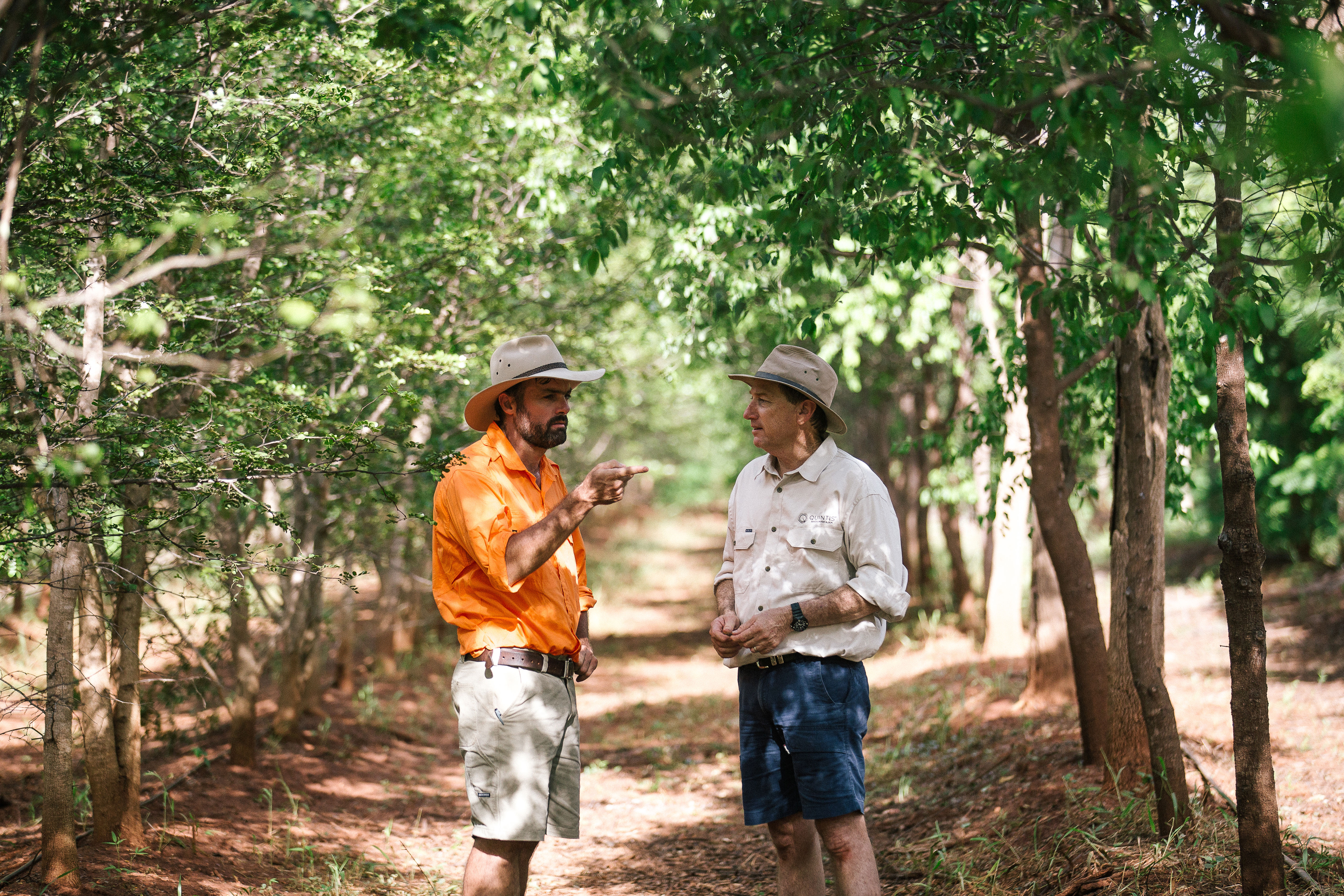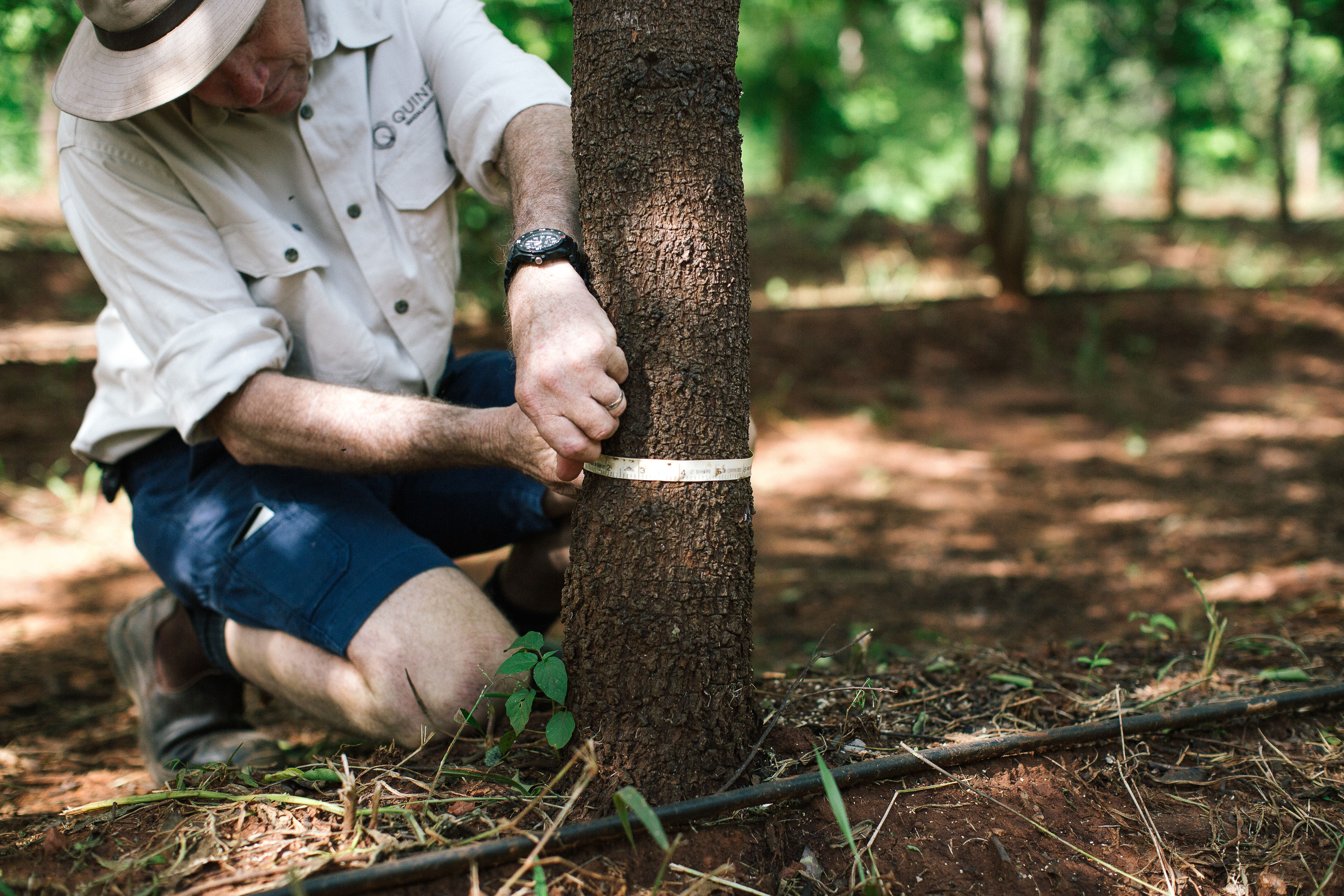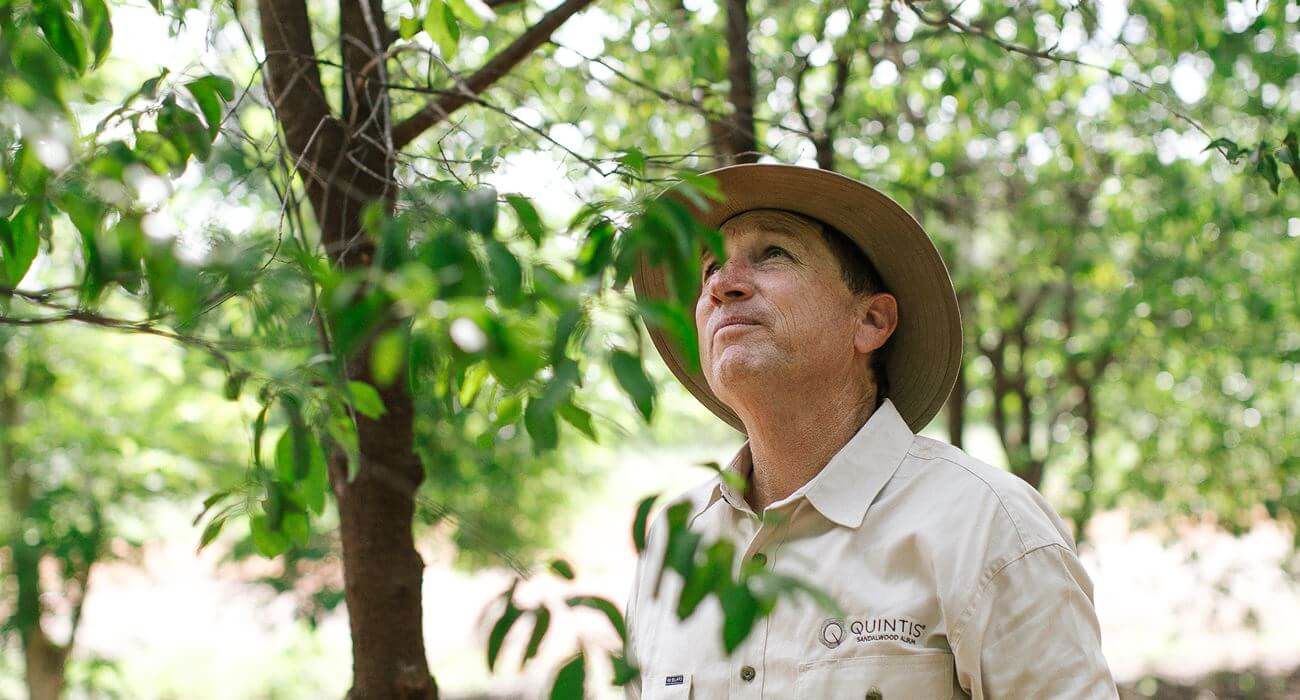The life of a forester, it sounds as though it would be a life on the frontier, discovering new things and exploring aspects of nature's gifts. So, to set the record straight, we sat down with Ken Robson, the Head of our Forestry Research group to talk all things sandalwood.
Ken, many people don't know what it's like to be a Forester. Could you tell us what a typical day looks like for you?
As I am based in Darwin in the Northern Territory, I usually start the week by fulfilling my administrative and support role for my team. You can find me driving to the Katherine of Day plantations and reviewing research activities with one of our regional Research Foresters. A portion of the week is also spent with the forest protection team looking at the various pests and pathogens that we have across the plantations.
There's always lots to do. As an overview, what does your role involve?
I am the technical group leader for forestry. This involves managing the forestry research program and the forest protection program. I have a dedicated and enthusiastic team who provide the company with expertise to ensure the plantation stays healthy and is actively growing. We work across a wide range of disciplines from weed control through to tree breeding programs.

Forestry has touchpoints in every aspect of a tree's life! How has the 21st century influenced this?
Forestry in the 21st century provides benefits across several sections including the provision of jobs, environmental benefits, soil and water conservation. The industry has become more technical, using technology to assist with our work, helping forestry with precision and accuracy. We are continually looking at innovative methods to improve on some aspects of what we do.
With or without the changes to forestry practices, why do you think it's important for Quintis to grow a vulnerable species like Indian sandalwood?
In the 1990’s when I first started working with sandalwood, little was known about the genus. All of the species were being unsustainably harvested in their natural environments, and to an extent it still is today. The pleasure for me is seeing the industry grow from small research trials into the successful plantations we see today.
I have worked in countries where sandalwood has a very high importance in both a cultural and economic sense. The role Quintis has in the sandalwood community is important. I believe we have an obligation to not only be custodians of the species in Australia, but to assist in the protection of the genus, and develop the industry, particularly in Australia and across our western pacific neighbours.

What else is required to help in the development of the industry and ultimately, protecting the genus?
Although we have discovered a lot about growing sandalwood, it’s a case of ‘the more we find out, we realise there is more to learn’. Because of the parasitic nature of sandalwood, much of what is biologically important for growth happens below the ground, which is not easy to see. We still need research into many of the physiological aspects of the sandalwood-to-host relationship which will help us educate others on this complex species and its benefits.
Your passion for sandalwood certainly comes across. What are a couple of things you have learned working with the species?
- Sandalwood is a very resilient species. It can adapt to a changing environment. For example, although it naturally typically grows in well drained dry sites, it can grow just as well in sites with heavy soils as sandy soils.
- Many people and cultures have an affinity to sandalwood, and it attracts a lot of attention. When you say you work with sandalwood, almost everyone is interested. I think this is partially due to the mystique, but also because the unusual nature of growing it.
Finally, any last words of sandalwood wisdom you'd like to share?
Sandalwood has aspects of history, culture, science, and romance. As a forester, researcher and biologist, sandalwood is easily the most interesting plant in the industry to working in.
To learn more about Ken's experience or meet more of our team, click here.
